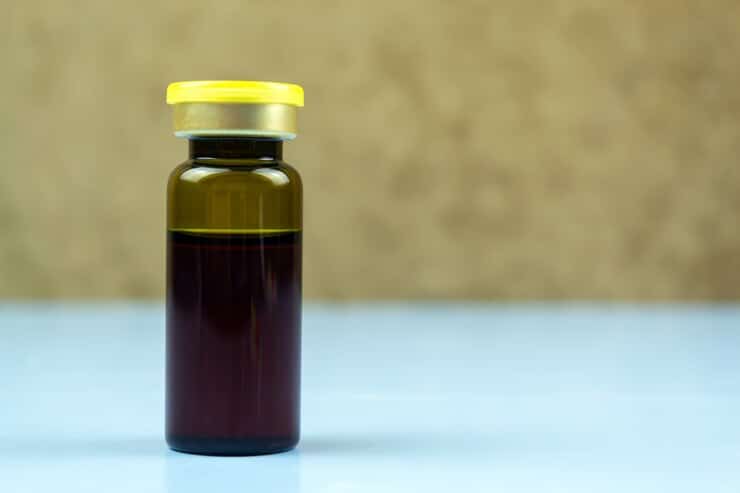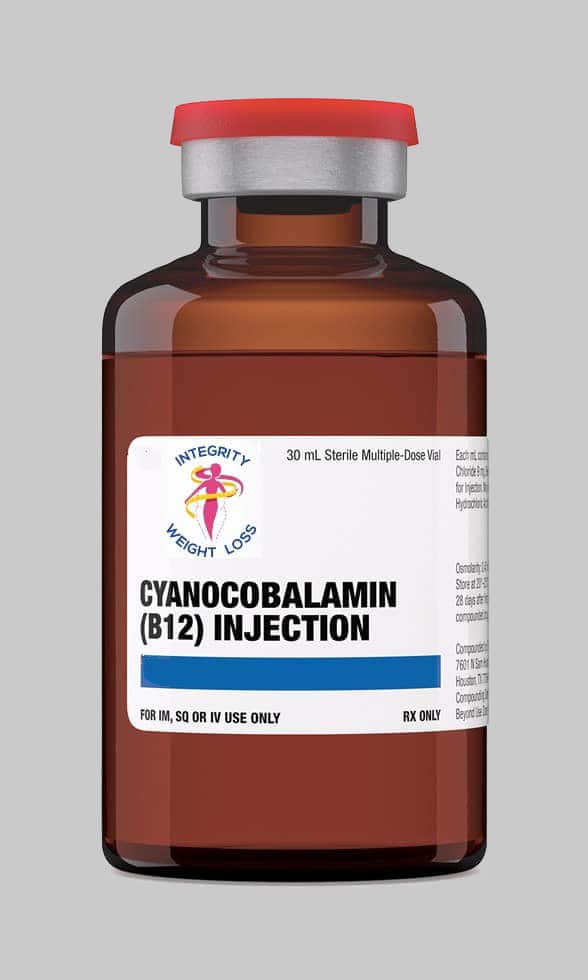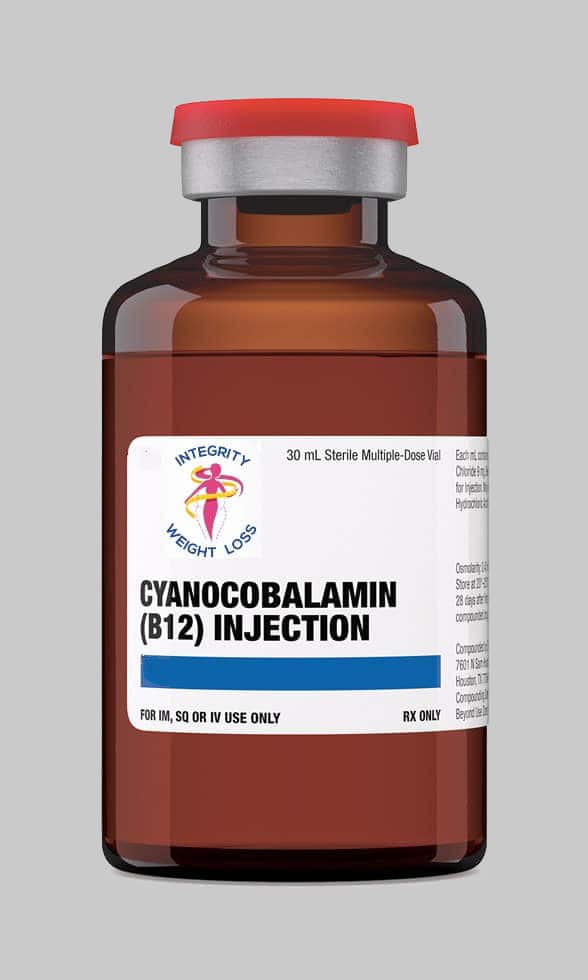Although vitamin B12 can exist in different forms chemically, cobalt is a component of all of them. It may take several years before a deficiency and its symptoms appear because the liver can store the vitamin for an extended period of time. Typical indications and manifestations of a vitamin B12 deficit include:
Although vitamin B12 can exist in different forms chemically, cobalt is a component of all of them. It may take several years before a deficiency and its symptoms appear because the liver can store the vitamin for an extended period of time. Typical indications and manifestations of a vitamin B12 deficit include:










• Having trouble with staying balanced
• Fatigue, lethargic behavior, or dizziness
• Feeling of pins and needles or numbness
• Anxiety or agitation
• Oral sores
• Decreased cognitive performance (problems with comprehension or memory)
• tongue that is sore and wollen; it may look red or pale yellow.
• Changes in vision

Semaglutide is a medication used for treating type 2 diabetes and obesity. It’s the active ingredient in Ozempic and Rybelsus.
Semaglutide works by mimicking GLP-1, a hormone that helps control blood sugar levels by causing the pancreas to release insulin, decreasing the production of glucagon, and slowing down the emptying of the stomach.
However, it can potentially lead to a vitamin B12 deficiency due to its effects on the gastrointestinal tract, which can affect B12 absorption. Receiving a compounded semaglutide and B12 injection may help prevent deficiency and could potentially enhance its therapeutic effects.
For those using semaglutide, combining vitamin B12 with an injection is generally thought to be a good idea.
Semaglutide and Tirzepatide, like other GLP-1 receptor agonists, are linked to a minor elevated risk of vitamin B12 insufficiency.
This is because GLP-1 receptor agonists have the ability to decrease stomach acid production and slow down gastric emptying, both of which may have an impact on vitamin B12 absorption. Stomach acid and intrinsic factor, a protein the stomach produces, aid in the absorption of vitamin B12.
If left untreated, this may eventually cause the body to have reduced levels of vitamin B12, which could result in a deficiency.

Semaglutide is a medication used for treating type 2 diabetes and obesity. It’s the active ingredient in Ozempic and Rybelsus.
Semaglutide works by mimicking GLP-1, a hormone that helps control blood sugar levels by causing the pancreas to release insulin, decreasing the production of glucagon, and slowing down the emptying of the stomach.
However, it can potentially lead to a vitamin B12 deficiency due to its effects on the gastrointestinal tract, which can affect B12 absorption. Receiving a compounded semaglutide and B12 injection may help prevent deficiency and could potentially enhance its therapeutic effects.
For those using semaglutide, combining vitamin B12 with an injection is generally thought to be a good idea.
Semaglutide and Tirzepatide, like other GLP-1 receptor agonists, are linked to a minor elevated risk of vitamin B12 insufficiency.
This is because GLP-1 receptor agonists have the ability to decrease stomach acid production and slow down gastric emptying, both of which may have an impact on vitamin B12 absorption. Stomach acid and intrinsic factor, a protein the stomach produces, aid in the absorption of vitamin B12.
If left untreated, this may eventually cause the body to have reduced levels of vitamin B12, which could result in a deficiency.
Semaglutide has been shown to be effective for weight loss in people with obesity.

B12 isn’t typically used as a primary weight loss treatment, but it’s important for overall health and the body’s metabolism and energy production, which could potentially complement the weight loss effects of semaglutide.
The usual method of administering semaglutide, Tirzepatide, or B12 is with a subcutaneous injection, which means injecting it beneath the skin. What to generally anticipate from an injection of this kind is as follows:
GLP-1’s helps to lower blood sugar levels by increasing the production of insulin and decreasing the production of glucose. By encouraging the appropriate operation of the pancreatic cells that produce insulin, vitamin B12 may help this process even more.
B12 helps control the fatigue that Semaglutide and Tirzepatide therapy frequently cause, which results in increased energy and better sense wellbeing.
B12 may lower the risk of heart-related complications in individuals with type 2 diabetes by enhancing heart health markers.
B12 is being researched as a potential tactic to reduce these effects when combined with semaglutide, even though side effects of the medication are usually mild and include nausea and diarrhea.
B12 isn’t typically used as a primary weight loss treatment, but it’s important for overall health and the body’s metabolism and energy production, which could potentially complement the weight loss effects of semaglutide.
The usual method of administering semaglutide, Tirzepatide, or B12 is with a subcutaneous injection, which means injecting it beneath the skin. What to generally anticipate from an injection of this kind is as follows:
Possible adverse effects of semaglutide, Tirzepatide and B12 supplementation
rarely has any negative effects when taking B12 and GLP-1’s together, some individuals may have gastrointestinal problems like nausea, diarrhea, or constipation. Most of the time, these side effects are not too severe and get better with time.
Additionally, skipping a semaglutide dose may make some people feel more hungry.
In summary
Semaglutide and Tirzepatide are drugs used to treat obesity and type 2 diabetes. They function by imitating the GLP-1 hormone, which lowers appetite and helps control blood sugar levels. Combining compounded semaglutide or tirzepatide with vitamin B12, which promotes the health of the nervous system and energy levels, may intensify its effects.
Injection Site: The abdomen, thigh, or upper arm are the usual locations for injections. A medical expert will either give you the injection or demonstrate how to do it correctly.
Enhanced blood sugar regulation: GLP-1’s helps to lower blood sugar levels by increasing the production of insulin and decreasing the production of glucose. By encouraging the appropriate operation of the pancreatic cells that produce insulin, vitamin B12 may help this process even more.
Although vitamin B12 can exist in different forms chemically, cobalt is a component of all of them. It may take several years before a deficiency and its symptoms appear because the liver can store the vitamin for an extended period of time. Typical indications and manifestations of a vitamin B12 deficit include:
Enhanced energy: B12 helps control the fatigue that Semaglutide and Tirzepatide therapy frequently cause, which results in increased energy and better sense wellbeing.
Support for cardiovascular health: B12 may lower the risk of heart-related complications in individuals with type 2 diabetes by enhancing heart health markers.
Management of side effects: B12 is being researched as a potential tactic to reduce these effects when combined with semaglutide, even though side effects of the medication are usually mild and include nausea and diarrhea.
Since injections do not pass through the digestive system, they have a higher bioavailability than oral supplements because they supply B12 directly into the bloodstream, where it is used by the body as fuel. Some people may find that taking supplements orally, but as we age, our body’s capacity to process these substances often declines.
There are 1000 mcg of B12 per ml/cc in the solution.
1ml/cc one time per week.
Subcutaneous B12 injections are usually recommended for GLP-1 patients. Before you begin, spend some time reviewing how to draw up and inject B12 solution and how to give a subcutaneous injection.
Common side effects include: Headache, nausea, exhaustion, diarrhea. Irritation at the injection site is the most frequent side effect of B12 injections. If this happens, think about moving the injection site or using fewer shots overall.
In the event that you are pregnant, nursing, intend to become pregnant, or neither, do not use B12 injections.
Sterile, as used in general medicine, basically means free of germs. Sterile can also refer to drugs, even though it’s typically used in reference to medical settings like operating rooms and instruments like scalpels. To ensure that the medication remains sterile from the moment it is compounded until it is used, sterile medications are mixed in a sterile environment. Injections, eye drops, and any other medication that circumvents your body’s natural defenses must be administered using this technique.
No. A cobalt ion is combined with a cyano group molecule to create cyanocobalamin B12. If additional additives were added to this process, the result would be a compound that is essentially distinct from cyanocobalamin B12.
Cyanocobalamin B12 injections frequently contain trace amounts of benzyl alcohol as a preservative and acetic acid or acetate as a buffer, just like any injectable medication does.


Since injections do not pass through the digestive system, they have a higher bioavailability than oral supplements because they supply B12 directly into the bloodstream, where it is used by the body as fuel. Some people may find that taking supplements orally, but as we age, our body’s capacity to process these substances often declines.
There are 1000 mcg of B12 per ml/cc in the solution.
1ml/cc one time per week.
Subcutaneous B12 injections are usually recommended for GLP-1 patients. Before you begin, spend some time reviewing how to draw up and inject B12 solution and how to give a subcutaneous injection.
Common side effects include: Headache, nausea, exhaustion, diarrhea. Irritation at the injection site is the most frequent side effect of B12 injections. If this happens, think about moving the injection site or using fewer shots overall.
In the event that you are pregnant, nursing, intend to become pregnant, or neither, do not use B12 injections. For a full list of potential side effects, please reference the Mayo Clinic’s resources here.
Sterile, as used in general medicine, basically means free of germs. Sterile can also refer to drugs, even though it’s typically used in reference to medical settings like operating rooms and instruments like scalpels. To ensure that the medication remains sterile from the moment it is compounded until it is used, sterile medications are mixed in a sterile environment. Injections, eye drops, and any other medication that circumvents your body’s natural defenses must be administered using this technique.
No. A cobalt ion is combined with a cyano group molecule to create cyanocobalamin B12. If additional additives were added to this process, the result would be a compound that is essentially distinct from cyanocobalamin B12.
Cyanocobalamin B12 injections frequently contain trace amounts of benzyl alcohol as a preservative and acetic acid or acetate as a buffer, just like any injectable medication does.
Semaglutide and Tirzepatide are drugs used to treat obesity and type 2 diabetes. They function by imitating the GLP-1 hormone, which lowers appetite and helps control blood sugar levels. Combining compounded semaglutide or tirzepatide with vitamin B12, which promotes the health of the nervous system and energy levels, may intensify its effects.